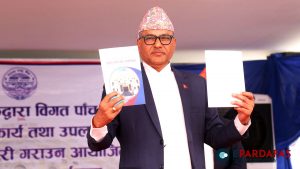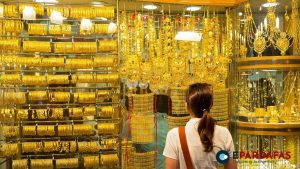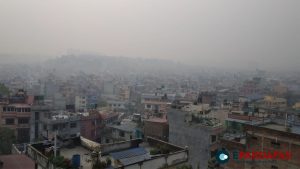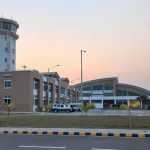
Interbank Interest Rates Hit NRB’s Limit After Four Months

Nepal Rastra Bank (NRB) faced a challenge on Tuesday as the interbank interest rate surged to the limit set by the central bank after a four-month struggle to keep it within the desired boundaries.
Despite NRB’s persistent efforts to maintain the interbank interest rate above 4.5 percent, the rate had remained below the specified limit for several months. However, on Tuesday, the rate finally reached the threshold set by NRB, marking a significant development in the country’s monetary landscape.
The NRB, in its Monetary Policy for the current fiscal year, initially aimed to cap the interbank interest rate above 4.5 percent, which was later reduced to 3 percent during the first-quarter review. The central bank employs the interest rate corridor as a tool to operate the open market, with the deposit collection rate at 3 percent and the bank rate at 7 percent.
In an attempt to control interbank interest rates, NRB had been consistently mopping up liquidity from the system, successfully withdrawing Rs 250 billion in the last one and a half months. Presently, the central bank holds liquidity of Rs 100 billion and continued its efforts by mopping up an additional Rs 10 billion on Tuesday, with plans to mop up Rs 25 billion on Wednesday.
Despite these measures, the interbank interest rates began to rise, reaching the required limit on Tuesday. Analysts are skeptical about the sustainability of this achievement due to the existing excess liquidity in the market, posing a potential challenge for NRB in maintaining the rates within the desired range.
The interbank interest rate, which stood at 4.92 percent on September 12, had been on a declining trend until it reached 4.37 percent on October 29, falling short of the NRB’s cap. The central bank had previously taken drastic measures during the first-quarter review of the monetary policy to address the continuous decline, adjusting the rate to 3.13 percent on October 6, where it remained below 3 percent until Tuesday’s unexpected surge.












Comments